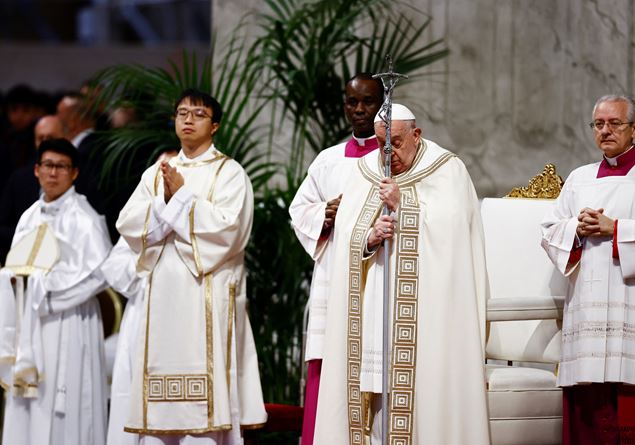
JD Vance’s contentious views on gender and parenting have come back to haunt him. “In 2020, long before he entered politics, Vance appeared on a podcast where the host said that having grandmothers help raise children is “the whole purpose of the postmenopausal female.”
Vance agreed—and that wasn’t all of what was discussed on the episode.
But it’s definitely strange to hear him agree that the entire purpose of a woman who is too old to bear children is to raise grandchildren. Not only is that offensive, but it’s also dismissive of other abilities or choices that women make.’”
It is also in sharp contrast to his personal history. In talking about his grandmother, he said, “Mamaw had her dreams but never the opportunity to pursue them…Mamaw was trapped in a loop of intense, oppressive caregiving that demands that women take care of some loved ones from the cradle and take care of other loved ones to the grave.”
None of that compassion is evident today.
Vance does violence to his grandmother’s memory. “The same woman who struggled to raise her own children as a teen mom was called upon to take full responsibility for him and his sister when she was a senior citizen.”
JD Vance is married to Usha, a 38-year-old prominent lawyer. In his acceptance speech at the Republican National Convention in July, he thanked his wife saying she was “an incredible lawyer and a better mom.” The two met at Yale Law School, where they were both students and took classes together before starting to date. They married in 2014 and have three children, ages 6, 4 and 2.
Usha Vance was raised by Indian immigrant parents in San Diego, according to the Associated Press. She earned her bachelor’s degree from Yale University and her master’s of philosophy from the University of Cambridge through the Gates Cambridge Scholarship. She clerked for Judge Brett Kavanaugh from 2014 to 2015, when he was in the US Court of Appeals, and for US Supreme Court Chief Justice John Roberts from 2017 to 2018. She joined the law firm Munger Tolles & Olson but has reportedly left the firm after Trump picked her husband as his vice president. Usha Vance was a registered Democrat until at least 2014, The New York Times reported. It is certainly worth wondering how she can handle putting her own career ambitions on the back burner, if Trump and Vance win. And such a victory would also advance “neo tribalism” in the US
With the election of a black president, some critics predicted a new era of peace and prosperity and the triumph of tolerant liberalism. Instead, we have seen a resurgence of what French sociologist Michel Maffesoli dubbed neotribalisman embrace of nostalgia for a simpler time that has the effect of setting various groups against each other. In the US, Donald Trump opened his presidential bid with an attack on Mexicans and went on to disparage Muslims, African-Americans and disabled people. His attacks on women have been constant, targeting Senator Elizabeth Warren journalist Megyn Kelly, Supreme Court Justice Sonia Sotomayor, and of course, recently, Kamala Harris.
At a time when neotribalism is on the rise, those most often targeted for attack are those that most recently won legal rights. Women are a prime example, which raises an important question: What will be the fate of women in an increasingly tribalized world?
If nations succeed in rolling back the progressive gains of the past forty years, women could be plunged into a true dark age where they will once again be the chattels of men. Is this possible? Maffesoli thinks such retro movements are in fact the wave of the future. He predicted that as the culture and institutions of modernism declined, nations would look to the distant past for inspiration. As a result, the post-modern era would be the era of neotribalism.
Ace The New York Times noted, “For white men across the Western world, special rights and privileges once came as a birthright. Even those who lacked wealth or power were assured a status above women and minorities. Though they still enjoy preferential status in virtually every realm, from the boardroom to the courthouse, social forces like the Me Too movement are challenging that status. To some, any steps toward equality, however modest, feel like a threat.”
The neotribalism to which Donald Trump is preaching has echoes of The Handmaid’s Tale, with few guard rails.
And the European Women’s Lobby reports that on the continent, far-right extremist parties are gaining power. “Very often, the program of these populist parties and movements involve concrete steps against equality between women and men, against human rights. They create conditions for a strong anti-feminist bias, taking action to the detriment of already achieved rights.”
Whatever you call it—the nostalgia for a past that excluded everyone who was not white, male, straight and Christian is dangerous.
It is a perilous time for women, who have so much to lose.
About the Authors: Rosalind C. Barnett is a senior scholar at Wellesley College and Caryl Rivers is a professor of journalism at Boston University







